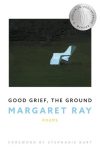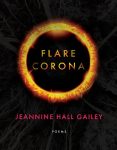
India Lena González’s debut fox woman get out! is a poetry collection of “restless mourning,” seeking a “salve” to the “stopping up [of] spirit.”
What has stopped up the poet’s spirit has to do with America and the country’s sociocultural demands that she prove “where to place [her]self” and perform her identity as una parda, one of “the mixed bloods whose ancestries could almost never be accurately described.” The poet turns those demands on their head and acts out an exorcism of the “gold-toothed hag that is America” instead.
To “rez rrrrr e k t” herself, González uses drama-based and poetic intervention. First, the poet calls to be “heard out.” This reader willingly took my seat in the “audience.” Second, the poet calls in her matriarchal and patriarchal ancestors—her “planets”—to guide and help her “get [her] words right” for both her and her family. Third, she tears herself “wide open,” “showing [her] wounds.”
As the scenes of what González calls her “magnum opus” unfold, she seeks to “beat the / out-west-fragility” and the “being-a-woman business” “out of” herself, thereby “wash[ing] the beasts off” and “shaking [off] the trauma.” According to González’s healing wisdom, if there is to be “beginning again,” “first the old must go out.”
Yet, one of the remnants of “the old” may linger, revealing itself in the poet’s “assuming” that “reader(s)” would get “lost” in Fox Woman’s cosmos or be suspicious of her “big A” authenticity. This reader wondered if this “assuming” was evidence of anxiety about being accepted and therefore ongoing trauma. America may not change, but the poet does. This reader followed “sparks of divinity” as India Lena González gave “birth” to her words on the page, “building” and “shaping anew // world.”
India Lena González’s fox woman get out! is medicine poetry.
fox woman get out! by India Lena González. BOA Editions, LTD, 2023.
Reviewer bio: Jami Macarty is the author of The Long Now Conditions Permit, winner of the 2023 Test Site Poetry Series Prize, forthcoming fall 2024, and The Minuses (Center for Literary Publishing, 2020), winner of the 2020 New Mexico/Arizona Book Award – Poetry Arizona. Jami’s four chapbooks include The Whole Catastrophe, forthcoming summer 2024 from the Vallum Chapbook Series, and Mind of Spring (Vallum, 2017), winner of the 2017 Vallum Chapbook Award. To learn more about Jami’s writing, editing, and teaching practices visit her author website.


